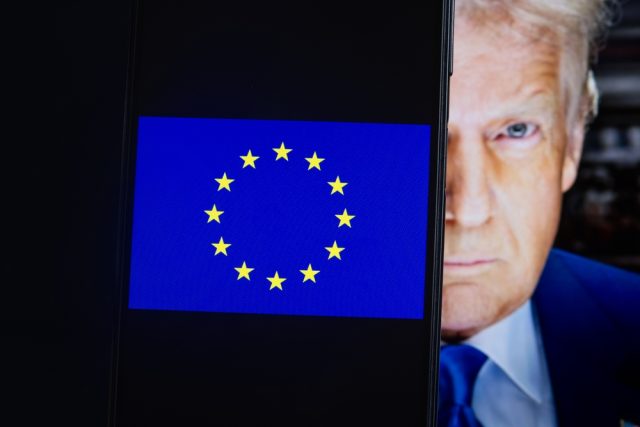
Donald Trump is a politician who, to say the least, arouses emotions and opinions. He has an unconventional rhetorical and political style but he also has a highly active and aggressive policy in many areas. Trump’s view of the conflict in Ukraine, his willingness to negotiate directly with Russia, his unwillingness to pay for Europe’s defense and his statements about Greenland, Canada and Panama have stirred the geopolitical pot, to say the least. His aggressive tariff policy has also created concern on stock exchanges and in financial systems around the world.
It is not easy to defend Trump if you are a conservative European. But you may not even need to defend Trump if you are a conservative European.
Even before Trump’s election victory, the political opponents of the right-wing parties were able to use the ideological kinship that exists between the European right and the American Republicans to try to harm European conservatives. Now that Trump’s political program is being rapidly translated into concrete policies, this strategy is becoming even easier to apply. We know that both Trump’s views on the war in Ukraine and his views on tariffs are shaking up the world’s countries and economies. The security situation is changing, and stock markets are falling worldwide. And all this can all be blamed on right-wing politician Donald Trump.
Then the question arises how conservative-minded people in Europe and the EU should react to Trump. Should we be happy that he won the presidential election, or should we think that it would have been better if the Democrats had won? How should European conservatives respond when journalists and political opponents ask if they “like Trump”?
The answer is not obvious. And this is a problem for conservatives. You can appreciate some of the things that Trump does but still be very hesitant about others.
Many right-wing people appreciate that Trump is tackling illegal immigration and that he is seriously attacking organized crime. Many also appreciate that he is so openly opposing woke culture. Trump and his associates seem to be serious when they say that they want to remove woke culture from universities, government agencies and important institutions in general. For many conservatives around the world, what is currently happening domestically in the United States is something of a dream. At last, the West has a leader who dares to challenge the intellectual left in universities, in media and in the establishment in general.
But at the same time, many people have difficulty with Trumps shocking foreign policy. When an American president openly says that Canada should become a state in the United States or that Greenland should become American property, people around the world raise their eyebrows. Greenland belongs to Denmark, and it is of course an insult to Denmark and to Europe in general that Trump allows himself to speak of a European territory in this way.
Many people are also reacting to Trumps tariff policy. Those who believe in free trade say that everyone will lose from the current tariff war, including the American working class. Many entrepreneurs in Europe are worried about how their sales in the United States will fare when tariffs make their goods more expensive. In addition, politicians and ordinary people around the world are worried about the downturn in the economy that general uncertainty and instability can cause.
And even if you sympathize with parts of American foreign policy, you might think that the Trump administration is a bit too aggressive in its handling of international relations. Diplomacy is supposed to be diplomacy, right? A far too blunt way of behaving on the international stage can create resistance rather than sympathy.
So how should conservative Europeans think? Should they support Trump or not? Should they say that they like Trump or not? The answer is far from obvious.



 Subscribe
Subscribe